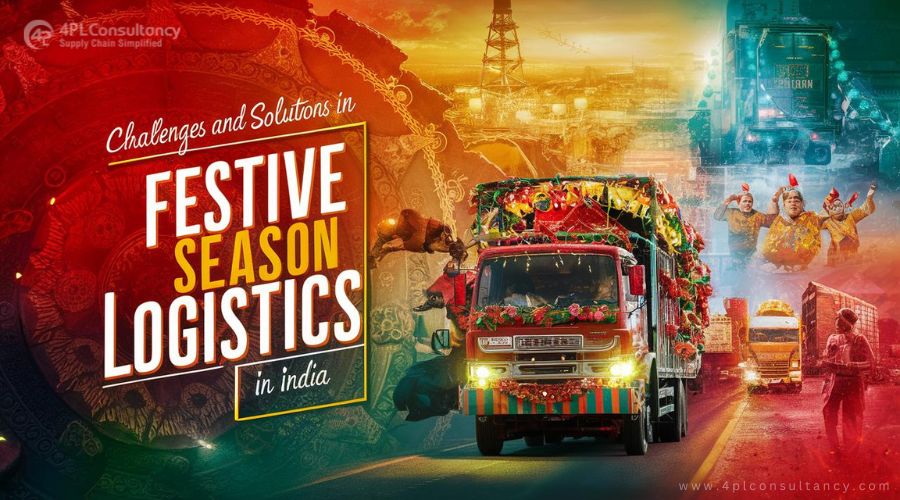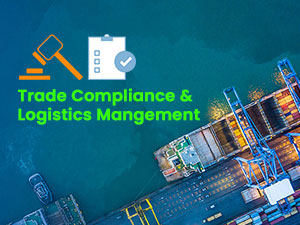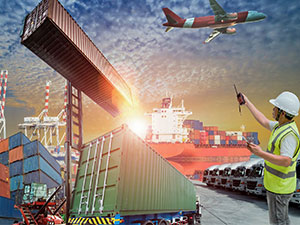Blog Details

Can India-Russia Economic Ties Remain Resilient Amid Sanctions?
Introduction
India's festive season is a time of celebration, joy, and... logistical chaos! With festivals such as Rakshabandhan, Diwali, Navratri, and Christmas igniting the hearts of millions, these times also bring significant challenges for the logistics sector. The massive spike in demand, coupled with increased pressure on the supply chain, requires meticulous planning and precise execution. This article delves into the state of logistics during India's festive periods and explores how the industry handles the seasonal surge in demand, freight rates, and operations management.
State of Logistics in India
The logistics industry in India is one of the largest in the world, with a market size expected to reach USD 380 billion by 2025. This sector plays a crucial role in facilitating trade and commerce across the country, from transporting raw materials to delivering finished products. In the last few years, the logistics industry has been undergoing significant changes with the adoption of technology and the implementation of government reforms such as the Goods and Services Tax (GST) and National Logistics Policy (NLP). These developments have streamlined operations, reduced costs, and improved delivery efficiency.
However, during festive seasons, the usual flow of goods and services faces heightened demand and additional hurdles. India's logistics sector is tasked with ensuring that millions of packages reach their destinations on time, whether for individual consumers or businesses preparing for the holiday rush.
The Surge in Demand
Festive seasons create a dramatic increase in consumer spending as people purchase gifts, decorations, clothing, and more. In 2022 alone, the Diwali season saw a 12% increase in e-commerce sales, highlighting the sheer volume of demand. As a result, logistics companies are flooded with orders that must be processed, shipped, and delivered within tight timeframes.
Retailers and e-commerce platforms often offer massive discounts during festive seasons, further driving demand. This surge requires logistics companies to expand their workforce temporarily, sometimes doubling or tripling their usual delivery capacity. Amazon India, for example, hires tens of thousands of additional workers during the festive season to meet customer demand.
Logistics Management and Operational Challenges
With the surge in orders, operational management becomes a critical focus during festivals. Companies need to ensure that their supply chains are resilient enough to handle the increased volume without compromising on efficiency. This requires careful inventory planning to avoid stockouts, optimized route planning to speed up deliveries, and real-time tracking systems to monitor shipments.
One of the biggest challenges during the festive season is ensuring on-time delivery. Late deliveries not only result in customer dissatisfaction but can also lead to a loss of business for companies. To mitigate this risk, logistics companies increase their reliance on third-party logistics providers (3PLs) and last-mile delivery partners to scale operations quickly and maintain service levels.
Furthermore, warehousing becomes a significant challenge. With an influx of goods to be stored, companies must manage space constraints and ensure that products are organized and accessible for quick dispatch. Many logistics providers opt for temporary warehousing solutions to accommodate the surge, allowing them to keep pace with demand without disrupting regular operations.
Freight Rates and Transportation Costs
Another critical factor during festive periods is the fluctuation in freight rates. As demand increases, so do transportation costs. Freight rates, particularly for air cargo and road transport, typically see a spike due to increased demand for fast delivery services. This is further exacerbated by fuel price fluctuations and congestion on key routes.
To counterbalance these costs, many companies employ dynamic pricing strategies, passing some of the costs on to consumers in the form of delivery surcharges or higher shipping fees. This dynamic pricing helps maintain profitability during high-demand periods but can also impact consumer buying behavior.
Rail freight, a critical mode of transportation in India, sees increased utilization during festivals. The Indian government has introduced initiatives to improve rail connectivity and efficiency, especially for transporting bulk goods such as grains, coal, and minerals. However, during festivals, the focus shifts to consumer goods, putting additional pressure on the rail network.
Technology: A Game-Changer in Festive Logistics
Technology plays a vital role in handling the festive season logistics surge. Companies use AI-powered forecasting tools to predict demand spikes and adjust their supply chain accordingly. Warehouse automation helps streamline sorting and packing, while GPS tracking ensures that deliveries are made on time. Additionally, blockchain technology is being explored to enhance transparency and reduce the risk of delays.
Companies are also leveraging big data analytics to optimize delivery routes and minimize transportation costs. This has led to faster deliveries and reduced fuel consumption, which is essential during peak seasons when even minor delays can cascade into significant operational challenges.
Conclusion
India’s festive season presents a unique set of challenges for the logistics sector, but with the right combination of technology, strategic planning, and operational management, companies can navigate the surge in demand effectively. From freight rate fluctuations to warehousing constraints, logistics providers must remain agile and adaptive to keep the wheels of commerce turning smoothly.
As the logistics industry continues to grow and evolve, driven by technological advancements and government policies, its ability to handle the demands of the festive season will only improve. The success of this sector will be critical in ensuring that India's economy thrives during these high-pressure periods.
4PL Consultancy has a team of experts in Tariff classifications of wide variety of Product lines – Medical spares, Aerospace, Radiation Oncology machines & spares etc.





